Enterprise Resource Planning, also known as ERP, is an essential tool for any distribution business. ERP for distributors allows employees and managers to have a centralized network that operates multiple aspects of the business. This includes elements such as payroll, inventory, KPIs, marketing, and more.
ERP is a suite of various software modules and components that are tailored to your business needs. Regardless of what sector of beverages you operate in, ERP will improve optimization of logistics and accounting. ERP for distribution provides an advantage over those operating via spreadsheets and paper. This is why ERP for your business is necessary if you want to grow and remain organized and efficient.
Here are some of the important aspects of ERP that may help your distribution company. These are aspects of ERP software suites you should research before purchasing an ERP suite from a vendor.
Business Data
Utilizing an ERP can be a scary venture, especially if it is your first time. When you are first starting off, the idea of tracking trends over time may not be at the very top of your priorities list. Regardless, after you have established your baseline, you may discover that you need to start analyzing trends for market growth.
The importance of analyzing trends and business data is that it will give you a closer insight into your business’s performance. You may often find areas in which improvements can be made when you look at trends such as inventory tracking, employee performance, delivery routes, and so on.
Business data and trends can be analyzed on a short- or long-term basis. This can show you how new products are doing or how employees have been performing. If you are looking to improve your business growth, even if things are going well, using an ERP to analyze business data will provide you with the knowledge to expedite growth.
Scalability
There are ERPs that are also scalable for your business. Ideally, most business owners want to see their businesses grow and prosper. Using an ERP to begin with will expedite that growth process; however, you will want to ensure that your ERP suite will continue to work optimally when your business grows. As more responsibilities, tasks, and logistical goals are created, your ERP suite must be able to accommodate the new workload.
There are multiple aspects to scalability that should be considered. Depending on the type of ERP you are using, additional hardware for your system may be necessary. This comes in the form of additional memory to store data, or perhaps additional processors to keep up with higher numbers of transactions or calculations. If you are shopping for a new ERP suite, you will want to make sure you can customize the hardware so it can physically keep up with your growth.
The software itself is another element that is important to consider. The software, its dashboard, and access to data must be able to accommodate the increase in workload. This means being able to change or update modules so they can handle additional data and usage.
Another important aspect of scalability is that it will likely cost you more in terms of time, money, and productivity to completely replace your ERP suite with another software suite to organize your business. During such an upgrade or replacement there will be downtime, new bugs or glitches to resolve, and new training that employees must undergo. Due to the fact that distribution businesses are prime candidates for later growth, scalability is an important aspect to consider when shopping for an ERP system.
Dashboards and Accessibility
Having an easily understandable dashboard for users is important for all distributors and their ERP. Easy-to-understand data and user interfaces will improve productivity because the user will spend less time trying to figure out how to find what they are looking for. Accessibility also reduces time spent trying to train new employees on how to figure out the system. If the ERP has an intuitive dashboard, users will feel more comfortable accessing data and compiling reports.
Integration
When you are looking for a new ERP suite for your distribution business, make sure to research how easy it is to integrate and implement the product. A grand and complex ERP suite may be great, but if there is significant cost or conflicts of software, it may turn out that your return on investment will not be what you had hoped. It will be important to compare and contrast your different systems with your potential ERP product.
When integrating a new ERP system, or any new tool or technique for your business, it is wise to consider your return on investment. While you can factor in the initial cost, you will also want to compare future cost/benefits of different aspects of your business performance and how it relates to your ERP.
Lastly, while you are researching products to optimize distribution operations, be sure to research the vendor itself. Different vendors will provide different quality products, including long-term management and support. Integrating any new software suite will likely come with bugs or technical glitches; that is to be expected with any new system. However, if you purchase an ERP from a vendor who provides no support after the product has been integrated, you may find yourself struggling to overcome the challenges. Additionally, a good vendor may have other products that can accompany your ERP and further improve your small business’s efficiency. Creating harmony and synergy between your ERP and other third-party programs will be beneficial for your distribution organization.
Contact eoStar
If you are managing and operating a warehouse and are looking for a new ERP, contact eoStar. We can help you integrate a new and customizable ERP suite into your warehouse enterprise. We have been in the business of optimizing warehouses, both small and large, for many years and will be happy to help you grow.






